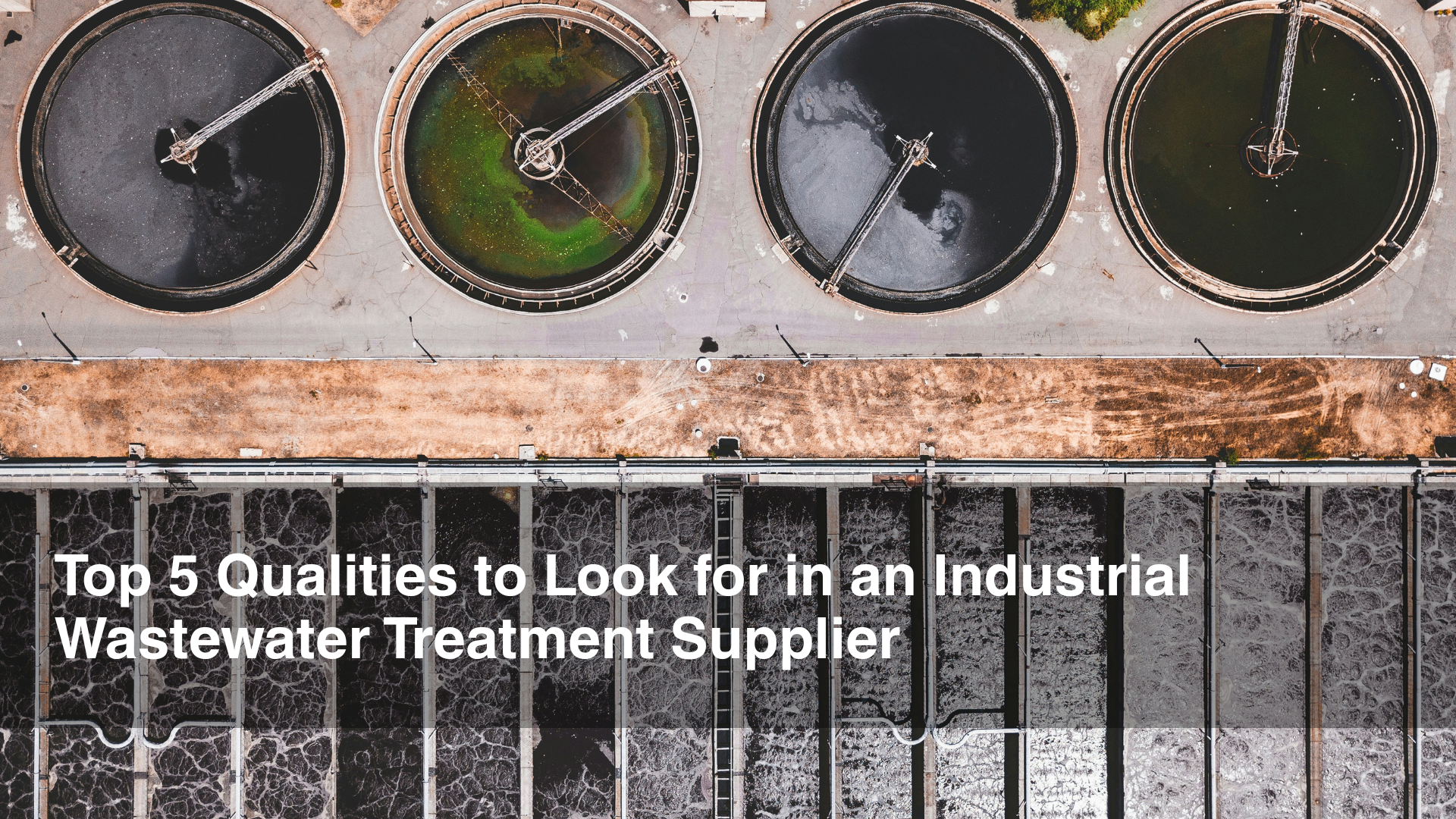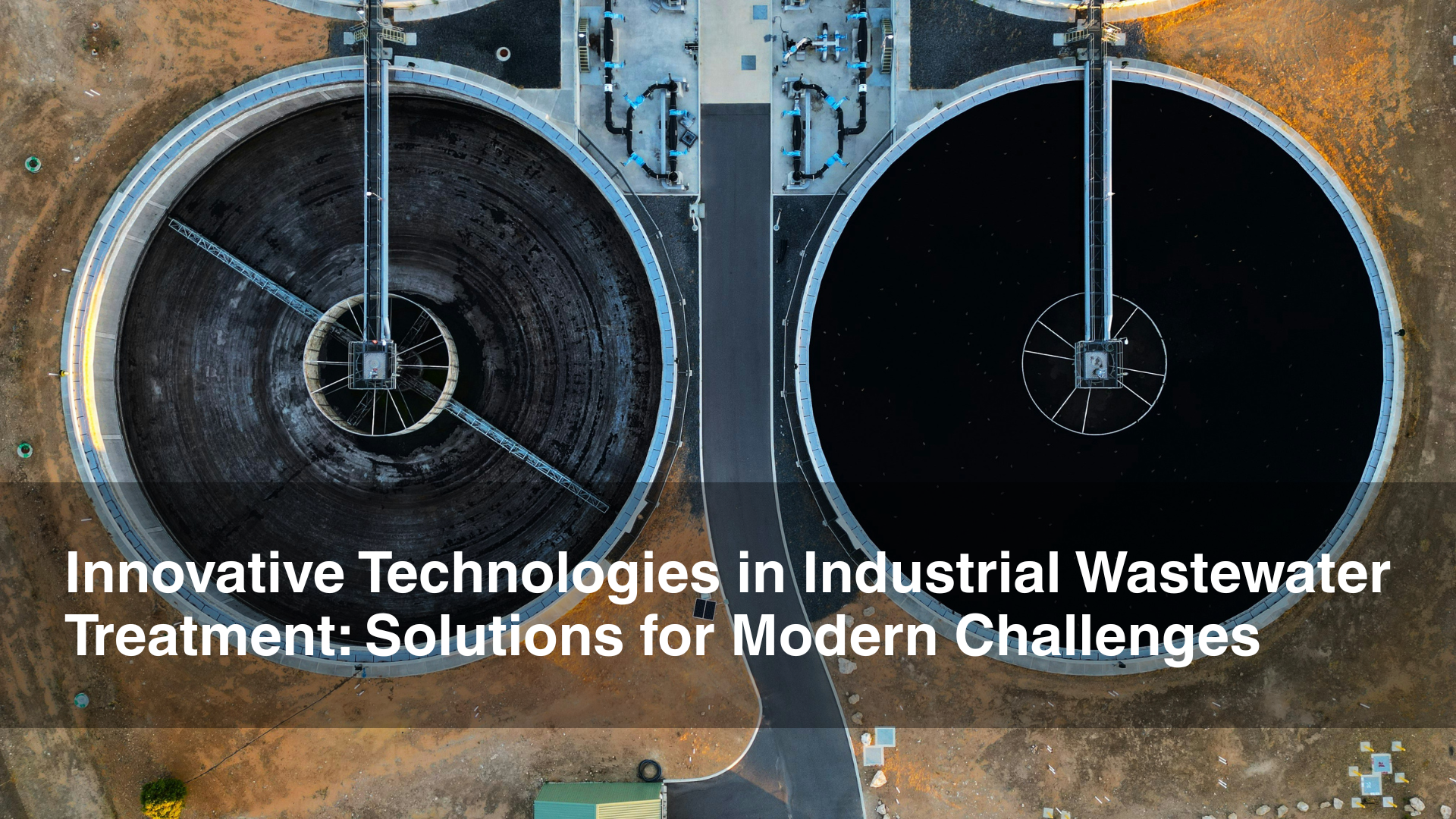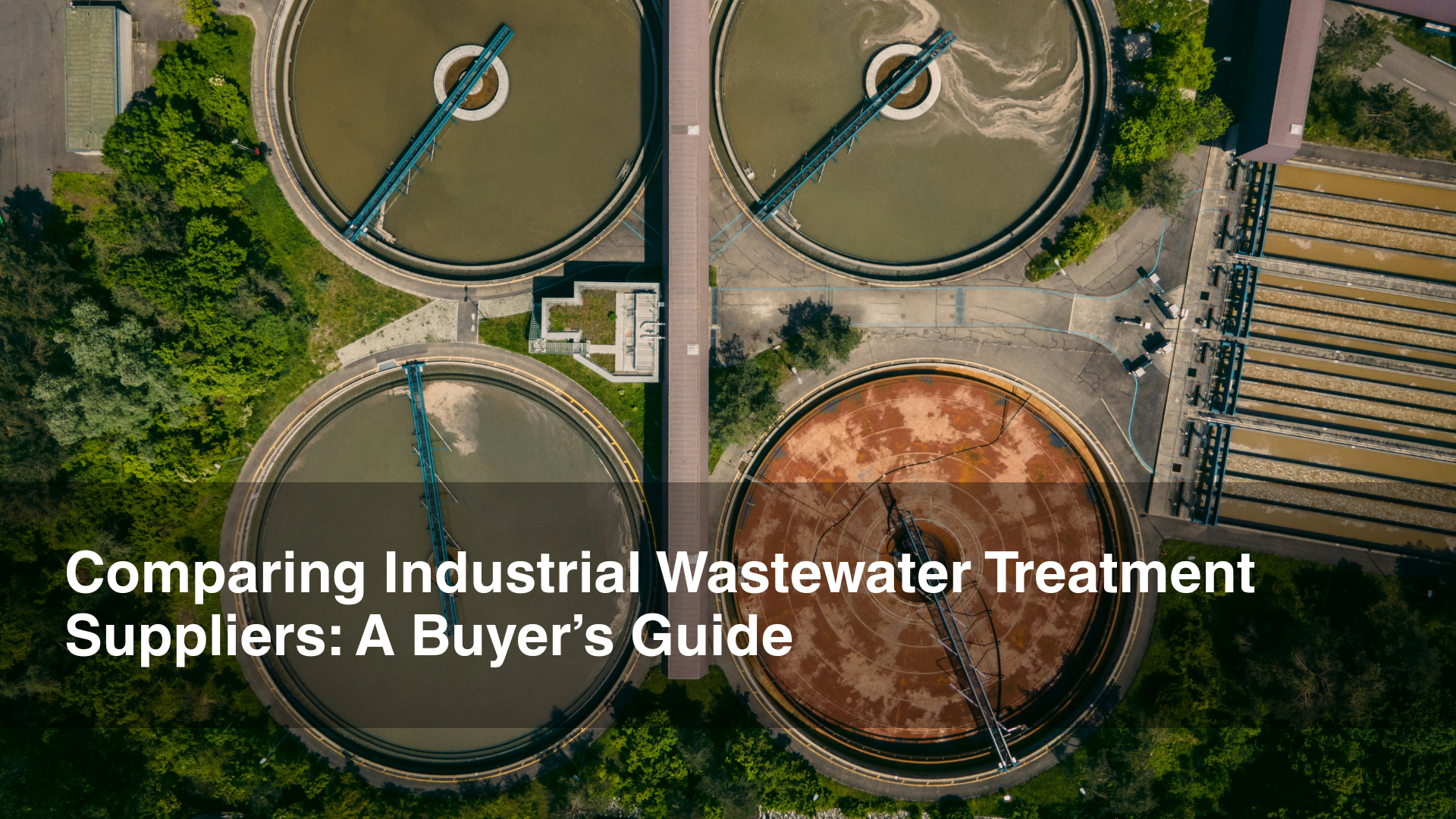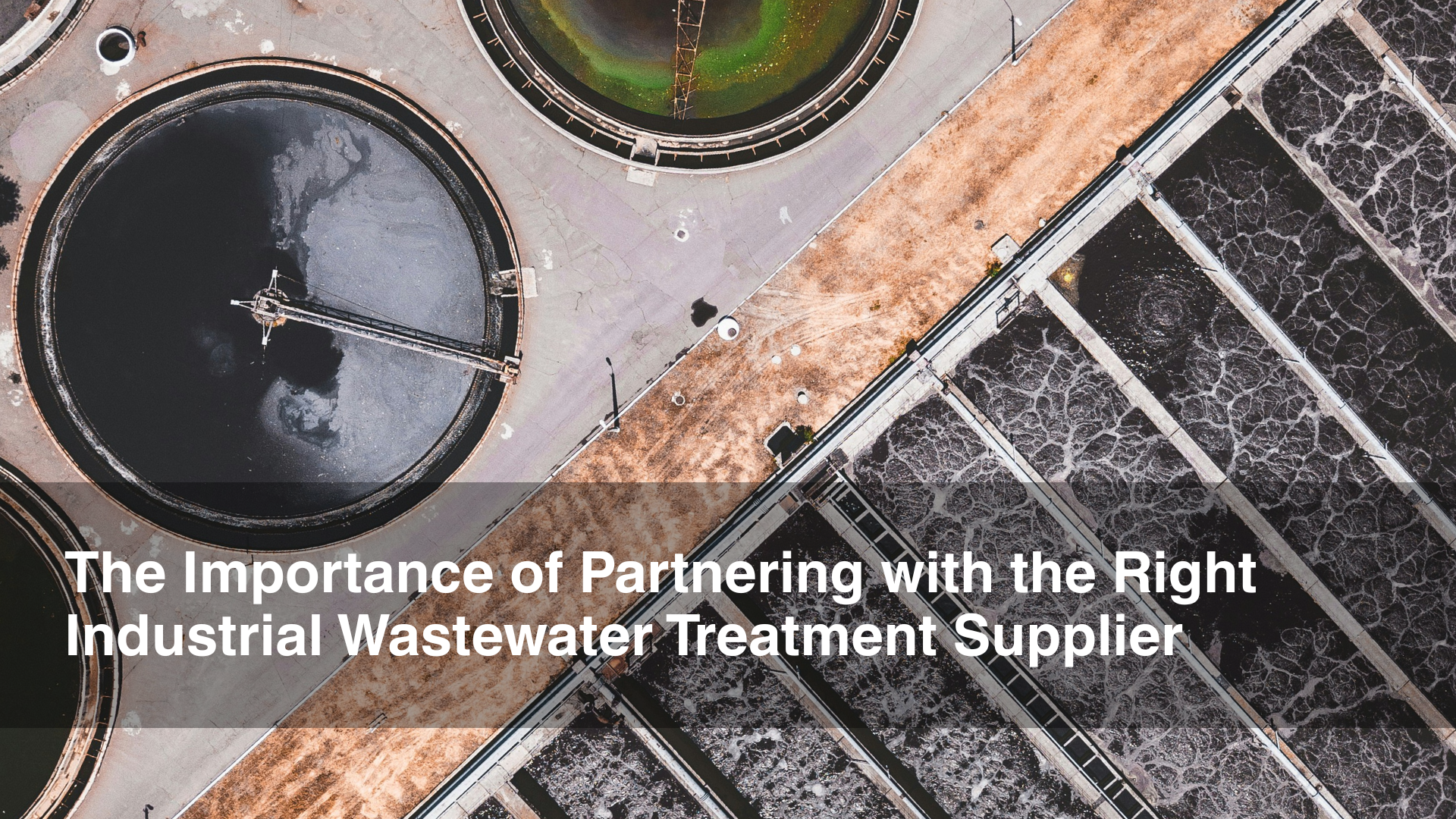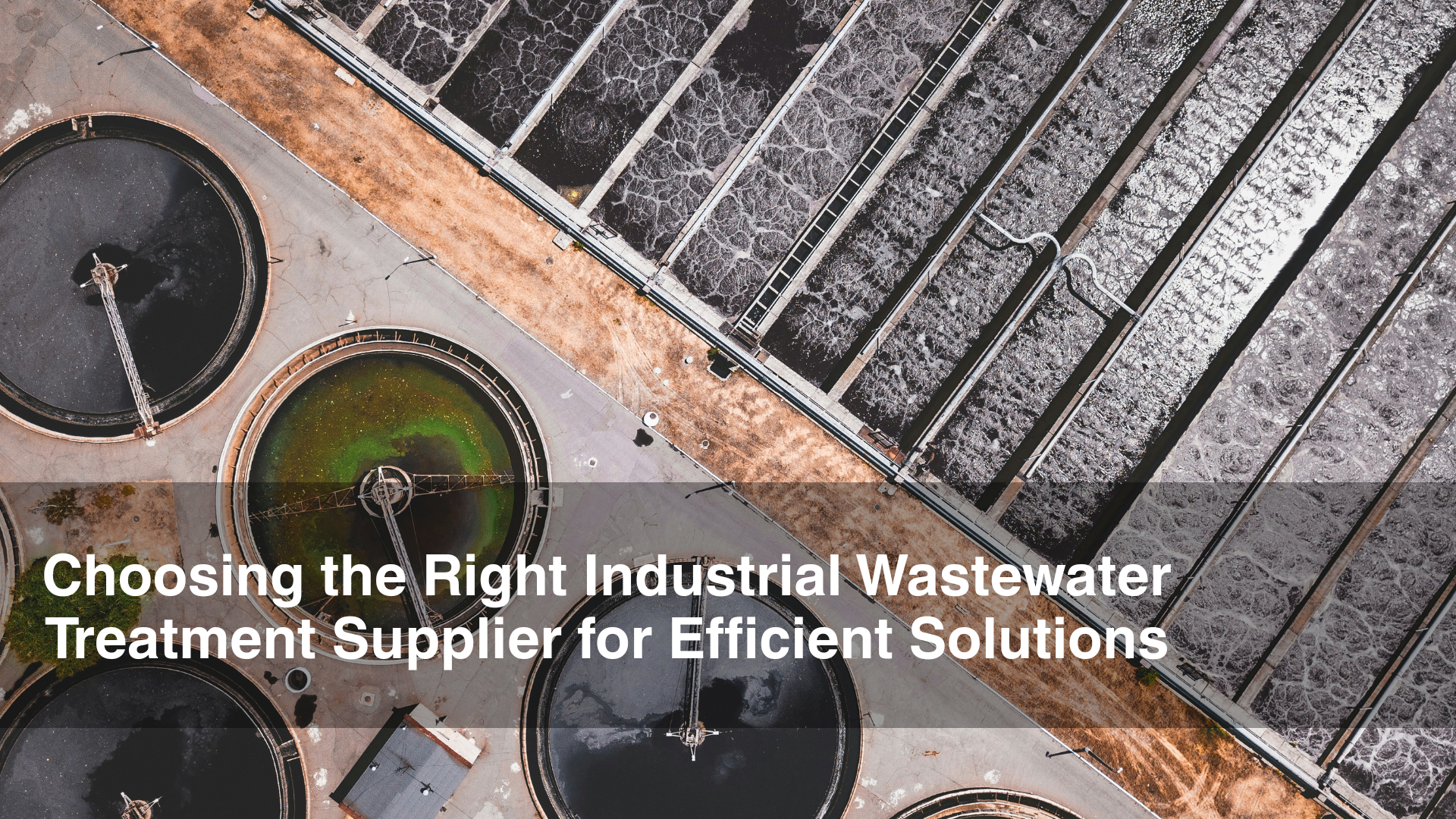Introduction to Industrial Wastewater Treatment
Industrial wastewater treatment plays a pivotal role in maintaining environmental health and ensuring regulatory compliance in various sectors. As industries continue to grow and evolve, the management of wastewater has become increasingly significant, reflecting a commitment to sustainability and responsible operations. The discharge of untreated or inadequately treated wastewater can lead to substantial environmental degradation, impacting local ecosystems and communities. Therefore, it is critical for industrial operations to implement effective wastewater treatment processes.
A reliable wastewater treatment supplier is a fundamental component of any industrial company’s infrastructure. Suppliers in this field offer essential services and technologies that enable facilities to treat their effluent appropriately, reduce harmful pollutants, and meet legal discharge limits set by governing bodies. A dependable industrial wastewater treatment supplier does not merely provide equipment; they deliver comprehensive solutions tailored to specific industrial needs, ensuring that clients can navigate the complexities of wastewater management efficiently.
Choosing the right partner in wastewater treatment is not just about functionality; it profoundly affects the long-term sustainability of industrial operations. An inadequate supplier can lead to high operational costs, compliance issues, and potential legal ramifications due to environmental violations. On the other hand, a trustworthy industrial wastewater treatment supplier enhances productivity, mitigates environmental impact, and fosters regulatory alignment. With a clear understanding of the importance of water resource management, industries must prioritize the selection of a competent supplier who integrates innovative technologies and best practices to ensure effective treatment protocols.
Experience and Expertise of an Industrial Wastewater Treatment Supplier
When selecting an industrial wastewater treatment supplier, one of the most critical attributes to consider is their experience and expertise within the industry. The complexities involved in wastewater management require a deep understanding of both regulatory requirements and the technological advancements that drive operational efficiency. Suppliers with substantial industry experience typically boast a well-rounded knowledge base that can significantly impact the effectiveness of wastewater treatment solutions.
A seasoned supplier often brings a wealth of practical insights gained from prior projects, enhancing their ability to customize solutions to meet specific client needs. For example, an industrial wastewater treatment supplier with a proven history in handling complex chemical compositions and various industries—such as pharmaceuticals or metallurgy—will possess unique strategies to optimize treatment processes. Their experience not only reflects in project outcomes but also in their capability to mitigate potential challenges and operational risks associated with wastewater treatment.
Additionally, testimonials from past clients serve as an excellent barometer for assessing a supplier’s credibility and effectiveness. For instance, a respected supplier may showcase case studies where they successfully reduced pollutants within stringent deadlines or improved water reuse efficiency by implementing innovative treatment technologies. Such references reassure new clients of the supplier’s competency and reliability. Furthermore, long-standing relationships with regulatory agencies often indicate an experienced supplier’s compliance with environmental standards, enabling smoother project execution.
In summary, a supplier’s extensive experience and proven expertise in the realm of wastewater treatment can lead to improved outcomes, compliance assurance, and innovative solutions tailored to meet the client’s unique requirements. Investing time to evaluate a potential supplier’s track record is essential for ensuring that an industrial facility can navigate the challenges of wastewater management effectively.
Customization of Solutions by Your Industrial Wastewater Treatment Supplier
When selecting an industrial wastewater treatment supplier, one of the most significant qualities to consider is their ability to provide customized solutions. Different industries generate wastewater with varying pollutants, volumes, and characteristics, necessitating a tailored approach to treatment. Customization is essential because a one-size-fits-all solution often fails to adequately address the unique challenges posed by specific industrial processes. A supplier that can design and implement custom wastewater treatment systems is better positioned to meet your operational needs and compliance requirements.
Understanding the distinct characteristics of your industry is vital for any potential supplier. For example, the textile industry may produce wastewater filled with dyes and chemicals, requiring a different treatment method compared to the food processing industry, which may deal with organic waste. Therefore, it is essential to engage with potential suppliers and ask targeted questions about their experience in customizing treatments for various industries. Inquire about their ability to analyze the wastewater characteristics uniquely associated with your operations and their protocols for adapting existing systems or designing entirely new ones.
Moreover, a reliable wastewater treatment supplier should demonstrate a commitment to ongoing support and optimization of the customized solutions provided. This includes regular monitoring, maintenance services, and a willingness to adapt the solutions as your operations evolve or regulatory requirements change. Ultimately, working with a supplier that prioritizes customization not only enhances the efficiency of wastewater management but also fosters a more sustainable operation. Tailored treatment systems can contribute to reduced environmental impact and enhanced compliance with local regulations thus ensuring a more comprehensive and responsible approach to wastewater treatment.
Technological Innovation
Technological innovation plays a pivotal role in the realm of industrial wastewater treatment, shaping the effectiveness and efficiency of treatment processes. As industries face increasing regulations and environmental demands, the need for advanced solutions has never been more critical. An industrial wastewater treatment supplier that stays on the cutting edge of technology is essential for businesses aiming to optimize their wastewater management strategies.
Innovative technologies, such as membrane bioreactors, advanced oxidation processes, and smart monitoring systems, have significantly upgraded conventional treatment methods. These advancements not only enhance the removal of contaminants but also improve operational efficiencies, leading to reduced energy consumption and lower operational costs. For instance, automated systems that leverage data analytics can provide real-time monitoring and adjustments, ensuring that treatment processes are both effective and resource-efficient.
Moreover, staying abreast of current trends and emerging technologies in the wastewater treatment field allows industrial wastewater treatment suppliers to offer tailored solutions that meet specific client needs. The integration of artificial intelligence in process optimization and predictive maintenance is one such trend, providing suppliers the capability to foresee potential equipment failures, thereby minimizing downtime and enhancing reliability.
Furthermore, advancements in eco-friendly treatment options, such as bioremediation and zero-liquid discharge systems, allow industries to not just comply with regulations but also promote sustainable practices. As businesses increasingly prioritize environmental responsibility, an industrial wastewater treatment supplier that embraces and invests in technological innovation will have a competitive edge.
In conclusion, the integration of technological innovations is paramount for industrial wastewater treatment suppliers, influencing operational efficiency, cost-effectiveness, and compliance with environmental standards. Organizations must partner with suppliers who prioritize these advancements to ensure their wastewater treatment processes are both effective and sustainable.
Technological Innovation in Industrial Wastewater Treatment Suppliers
In the field of industrial wastewater treatment, having a comprehensive understanding of regulatory compliance is paramount. An industrial wastewater treatment supplier must possess in-depth knowledge of current local, national, and international regulations that govern wastewater management. Compliance is not just a legal obligation; it is a critical factor that can significantly affect a company’s operational integrity and reputation.
Regulatory requirements often vary across different regions and industries, making it essential for suppliers to stay updated with the latest changes and advancements in laws, policies, and best practices. A proficient supplier will not only understand these regulations but also be able to interpret their implications for their clients’ specific operations. This understanding enables them to design efficient treatment solutions that align with regulatory standards, thus fostering a compliant environment for industrial operations.
An experienced industrial wastewater treatment supplier will proactively assist companies in navigating complex regulatory landscapes, providing guidance on necessary permits, reporting requirements, and compliance audits. Their expertise can lead to the development of effective wastewater treatment strategies that minimize environmental impact while meeting the legal complexities of wastewater discharge.
Moreover, the knowledge of regulatory compliance can significantly reduce the risk of fines and penalties that often accompany non-compliance. A reliable supplier can help mitigate the potential for costly shutdowns or project delays due to regulatory issues, ensuring that operations remain uninterrupted and fully compliant with the law. To sum up, choosing a partner with strong regulatory compliance knowledge is a requisite step towards achieving sustainable industrial practices in wastewater treatment.
Customer Support and Service from an Industrial Wastewater Treatment Supplier
When selecting an industrial wastewater treatment supplier, the quality of customer support and service is paramount. Ongoing service and support can significantly influence the efficiency and effectiveness of wastewater treatment systems after installation. It is essential to consider a supplier not only for their initial capabilities but also for their commitment to supporting their clients continuously.
Accessibility is a core element of excellent customer support. An industrial wastewater treatment supplier should offer multiple avenues for clients to reach out for assistance, whether through phone, email, or online chat. The ease of communication allows clients to address issues promptly, mitigating potential downtime in operations. Furthermore, suppliers that provide dedicated account managers or support teams can significantly enhance the client experience, ensuring that any queries or concerns receive immediate attention.
Responsiveness is equally crucial. A reliable supplier should provide timely and effective responses to inquiries, demonstrating their commitment to customer satisfaction. Quick resolution of problems not only eases the burdens on clients but also fosters trust in the supplier’s capabilities. An ideal supplier aligns its service offerings with the specific needs of clients, showing an understanding of the complexities involved in wastewater management.
Technical support after installation is a vital component of long-term success. Industrial wastewater treatment systems may require regular maintenance or troubleshooting; therefore, proactive support from the supplier can lead to enhanced operational efficiency. A supplier that offers comprehensive training programs, routine system checks, and prompt assistance in emergencies can ensure that clients can maximize the benefits of their wastewater treatment solutions.
Establishing a solid relationship with an industrial wastewater treatment supplier, characterized by strong customer support and ongoing service, ultimately contributes to smoother operations and long-term success in wastewater management.
Sustainability Practices
In today’s industrial landscape, sustainability has become a critical focus, especially concerning wastewater treatment. An industrial wastewater treatment supplier that prioritizes eco-friendly practices not only contributes to environmental preservation but also enhances the company’s reputation in a market increasingly driven by sustainability concerns. Companies that select a conscientious supplier demonstrate a commitment to minimizing their ecological footprint, appealing to an expanding demographic of eco-conscious consumers.
Several sustainable practices can be anticipated from a reliable supplier in the wastewater treatment sector. One prominent approach is the implementation of advanced treatment technologies that reduce chemical usage and energy consumption. For instance, suppliers utilizing membrane bioreactors (MBRs) or advanced oxidation processes provide higher efficiency, leading to better-quality effluent while minimizing the impact on the environment.
Another essential aspect involves the treatment of wastewater for recycling purposes. A dedicated industrial wastewater treatment supplier may facilitate the reuse of treated water within manufacturing processes or for irrigation, thereby conserving freshwater resources. Furthermore, using renewable energy sources, such as solar or wind power, to operate treatment facilities showcases a commitment to sustainability, significantly reducing greenhouse gas emissions associated with traditional energy sources.
Partnerships with organizations focused on sustainability can also amplify the eco-friendly initiatives of an industrial wastewater treatment supplier. Engaging in community outreach and educating stakeholders about best practices further reinforces this commitment. It is therefore imperative for businesses to evaluate their suppliers based on sustainability efforts, as these choices not only shape their environmental footprint but also reflect positively on their corporate image.
Competitive Pricing and Value
The selection of an industrial wastewater treatment supplier necessitates a careful evaluation of competitive pricing alongside the overall value provided. It can be tempting for organizations to gravitate towards the cheapest options available; however, this approach may lead to long-term costs that far exceed initial savings. Thus, it is crucial to identify a balance between cost and quality when selecting a supplier, ensuring that the investment aligns with the organization’s operational needs.
To ensure that an industrial wastewater treatment supplier offers genuine value, one must evaluate the total cost of ownership (TCO). This assessment should encompass not just the purchase price of treatment systems and equipment but also operational costs, maintenance, regulatory compliance, and potential downtime. TCO provides a more holistic view of the expenses associated with wastewater treatment, enabling organizations to make informed decisions based on lifetime costs rather than upfront prices alone.
Another vital aspect is the return on investment (ROI) from the chosen wastewater treatment solutions. A supplier that offers reliable systems and services will likely result in reduced operational disruptions and higher efficiency, directly impacting the bottom line. Furthermore, investments in advanced technologies or performance-based contracts may initially present higher costs, but they can yield significant savings over time through improved processing efficiency and compliance with environmental regulations.
When evaluating industrial wastewater treatment suppliers, organizations should leverage industry comparisons and seek testimonials or case studies that highlight a supplier’s ability to balance pricing with value. By weighing all factors, including pricing structures, support services, and cutting-edge solutions, businesses can make mindful decisions that not only meet their immediate needs but also contribute to a sustainable, cost-effective wastewater management strategy in the long run.
Conclusion: Making the Right Choice
Choosing the right industrial wastewater treatment supplier is a critical decision that can significantly impact your operations and compliance with environmental regulations. As outlined in the previous sections, there are several key qualities to consider when evaluating potential suppliers. First and foremost, expertise and experience in the field of wastewater treatment are essential. A supplier with a track record of successful projects is more likely to provide effective solutions tailored to your needs.
Additionally, the technological capability of the supplier plays a crucial role. Access to advanced technology not only enhances efficiency but also ensures that the treatments employed are effective in meeting regulatory standards. Furthermore, customer service and support should not be overlooked. A responsive supplier that offers proactive communication and problem-solving support can make a significant difference in maintaining your wastewater treatment system’s functionality.
Moreover, it is important to consider the supplier’s reputation within the industry. Conducting thorough research, including reading reviews and seeking testimonials, can provide valuable insights into a supplier’s reliability. Finally, assessing the feasibility of solutions offered, including cost-effectiveness and scalability, will impact the long-term sustainability of your wastewater treatment process.
As you embark on the journey of selecting an industrial wastewater treatment supplier, keep in mind the importance of a thorough vetting process. Each of the qualities highlighted in this blog post serves to ensure that the supplier you choose aligns with your organizational goals and regulatory requirements. Take the time to engage with potential suppliers based on these criteria, ensuring your choice leads to effective and compliant wastewater treatment solutions.

